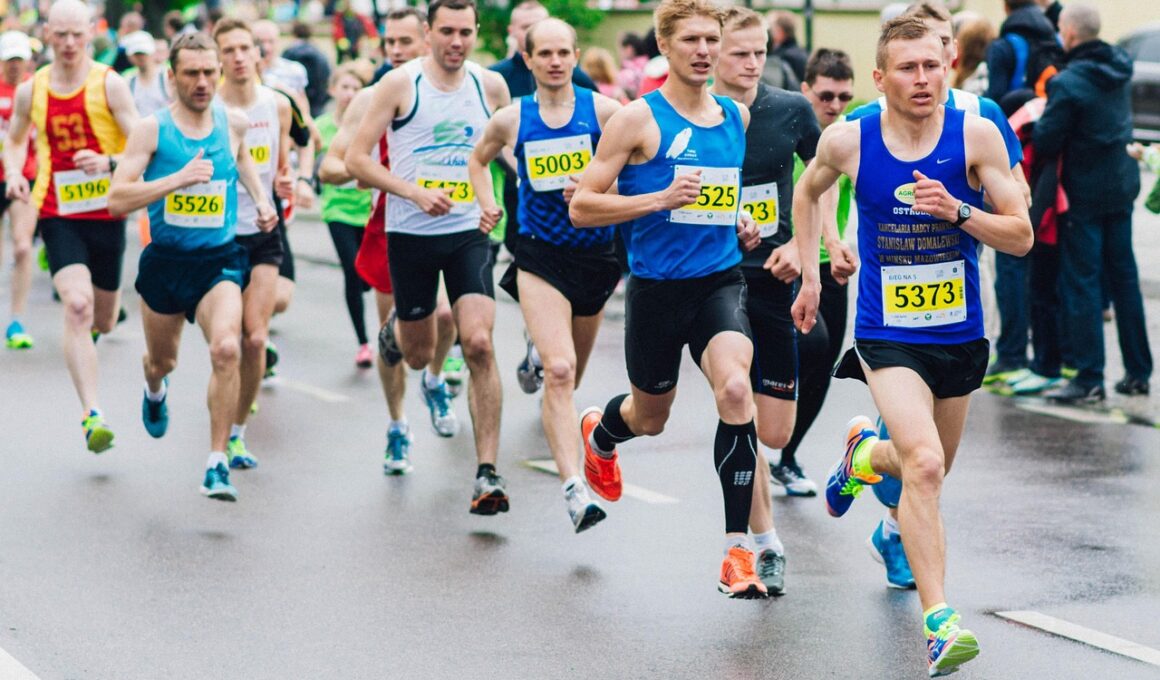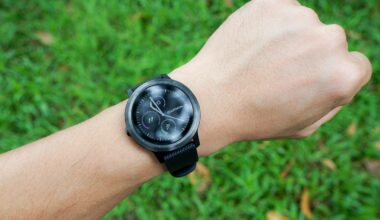Understanding Popular Fitness Events
Fitness competitions come in various forms, each challenging participants to push their physical and mental limits. From bodybuilding contests to endurance races, these events attract individuals from all over the globe. Notably, competitions like the CrossFit Games and Spartan Races have gained immense popularity, fostering a sense of community among fitness enthusiasts. Engaging in these events requires comprehensive training plans tailored to specific skills and strengths. Preparing for a competition not only enhances physical capabilities but also builds mental toughness. Hence, it’s crucial to develop a strategic training routine. Moreover, dietary considerations play a significant role in how competitors perform. A balanced diet rich in proteins, carbohydrates, and healthy fats can fuel the body effectively. Finding the right balance might involve seeking professional nutrition advice, ensuring optimal performance in competitions. In addition to physical training, competitors must also focus on recovery strategies, such as adequate sleep and mindfulness practices. These elements together create a foundation for success in any competitive fitness arena, making it essential for participants to educate themselves before committing to competitions.
Establishing a Training Schedule
Creating a well-structured training schedule is paramount for success in fitness competitions. A successful training plan should outline daily activities, including strength training, cardio, and flexibility exercises. To optimize performance, competitors can employ the principle of periodization, which suggests varying workout intensity over time. Incorporating rest days into the training schedule allows muscles to recover, thus preventing injury. Moreover, competitors should consider their specific event requirements when devising training routines. For example, those training for triathlons must focus heavily on swimming, cycling, and running. Additionally, incorporating practices like high-intensity interval training (HIIT) can improve cardiovascular endurance swiftly. It is crucial to listen to the body throughout the training process and make necessary adjustments. Consistent tracking of progress by noting improvements in strength or endurance can enhance motivation. Furthermore, utilizing technology, such as fitness apps or wearable devices, provides valuable data that can inform training decisions. Competitors should also seek community support and possibly find a workout partner. This social aspect of fitness training can provide encouragement and accountability, essential factors in staying committed to a rigorous training routine.
Nutrition plays a significant role in training for fitness competitions. Competitors need to fuel their bodies with the right types of food to maximize energy and performance. A nutrition strategy should include macronutrients such as proteins, fats, and carbohydrates. Protein is vital for muscle repair and growth, while carbohydrates provide necessary energy for high-intensity workouts. Good sources of healthy fats are equally important, as they are essential for hormone production and overall health. The timing of food intake is critical; consuming a balanced meal or snack two hours before training can enhance performance. Post-workout meals should focus on protein and carbohydrates to aid recovery. Hydration cannot be overlooked either; maintaining fluid balance is vital to both performance and recovery. Competitors should tailor their dietary choices to their training cycles, ensuring they meet their specific nutrient needs. Meeting with a nutritionist can provide personalized insights for optimal nutrition plans. Supplementation may also be a helpful aspect for some competitors but should be approached with caution and professional guidance. Overall, a well-thought-out nutrition regimen supports the overall training process for successful competition outcomes.
Recovery is a critical component in preparing for fitness competitions. Without proper recovery practices, athletes risk injury and burnout, which can hinder performance. Recovery strategies should include adequate sleep, as it’s vital for the body’s healing processes. Aiming for 7-9 hours of quality sleep each night will ensure muscles repair and energy levels are replenished. Additionally, incorporating stretching and foam rolling into the routine can alleviate tension in muscles and enhance flexibility. Active recovery days can also be beneficial, allowing for light activities that promote blood flow without taxing the body. Techniques such as yoga, meditation, or massage therapy can further contribute to recovery efforts by reducing stress levels. Hydration plays a significant role in recovery; athletes should ensure they drink sufficient water to facilitate muscle repair. Moreover, maintaining a consistent post-competition recovery plan can mitigate fatigue and prepare for the next training cycle. Monitoring how the body responds to various recovery strategies can help in choosing the most effective methods. Establishing strong recovery routines ensures competitors are physically and mentally ready for continuous training.
Mindset and Mental Conditioning
Mental preparation is equally as important as physical fitness in competitions. Competitors often face psychological challenges such as anxiety, negative self-talk, or fear of failure. Therefore, mental conditioning techniques play a significant role in enhancing performance. Visualization, for instance, allows athletes to imagine the successful completion of their events, building confidence. Setting realistic goals for both short-term and long-term can offer motivation and a clear path to success. Techniques like mindfulness meditation help in focusing on the present moment, reducing performance-related stress. Additionally, developing a strong support system of friends, family, or fellow athletes creates a positive environment that can boost morale. Competitive individuals should work on affirmations that reinforce self-belief and capability. Another essential aspect is preparing for setbacks, as they are part of any competition journey. Recognizing that failures can lead to growth is vital, allowing for resilience during challenging moments. Incorporating these mental strategies into training can cultivate a robust mindset. The confidence built through mental conditioning translates directly into physical performance, making it an invaluable part of preparation for fitness events.
Participating in Specific Competitions
It’s essential for competitors to research specific events they plan to enter. Different fitness competitions demand various skills, which necessitate tailored training. For instance, a CrossFit competition requires proficiency in several disciplines, including weightlifting, gymnastics, and endurance. Therefore, diversifying training routines to improve in all these areas is essential. On the other hand, bodybuilding focuses primarily on aesthetics and muscle definition; therefore, training often emphasizes hypertrophy. Competitors should familiarize themselves with event rules and judging criteria as well. Understanding what judges look for can enhance performance and improve outcomes. Furthermore, understanding the event environment, such as the terrain in obstacle courses, is crucial in preparation. For those participating in endurance sports, pacing strategies may be vital, as managing energy over long distances is key. Engaging with a community of competitors can provide insights and shared experiences, which greatly enhances preparation efforts. Networking at events or through online platforms allows for shared knowledge that can clarify doubts and support training journeys. Once competitors understand the nuances of their chosen events, they can prepare more effectively, enhancing their chance for success.
Lastly, participating in mock competitions can be a beneficial training strategy. Simulating the competition environment allows athletes to familiarize themselves with the pressures and expectations they will encounter during the actual event. These mock sessions should replicate competition conditions as closely as possible, including timing, equipment use, and even attire. Such practice helps in building confidence, managing anxiety, and refining performance techniques. Furthermore, competitors can use these opportunities to test their nutrition strategies, hydration plans, and mental conditioning tactics. Feedback from peers or coaches during these trials can provide valuable perspectives to address weaknesses. It’s necessary to adjust training based on this feedback to enhance future performance. During these mock events, athletes can also learn how to handle unexpected challenges or setbacks, which are common in real competitions. Preparing for various scenarios ensures that competitors are not only technically ready but emotionally prepared for competition day. Implementing mock competitions at regular intervals during the training cycle can lay a strong foundation for success. Ultimately, these comprehensive strategies will empower athletes to excel in their upcoming fitness events.


